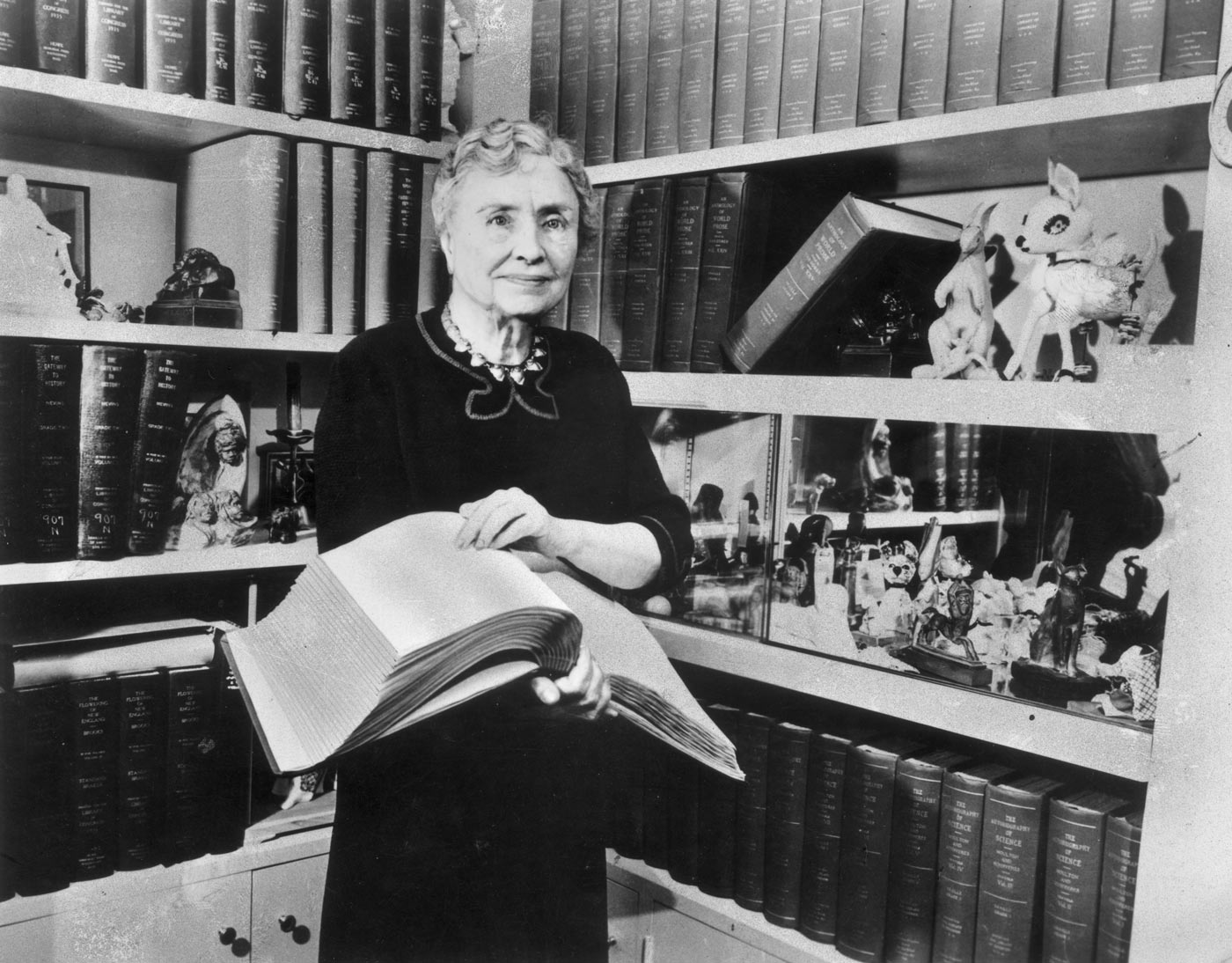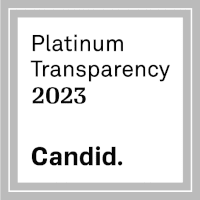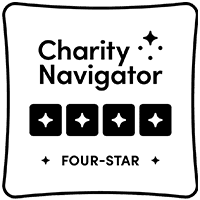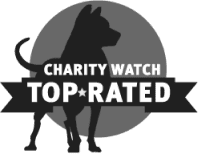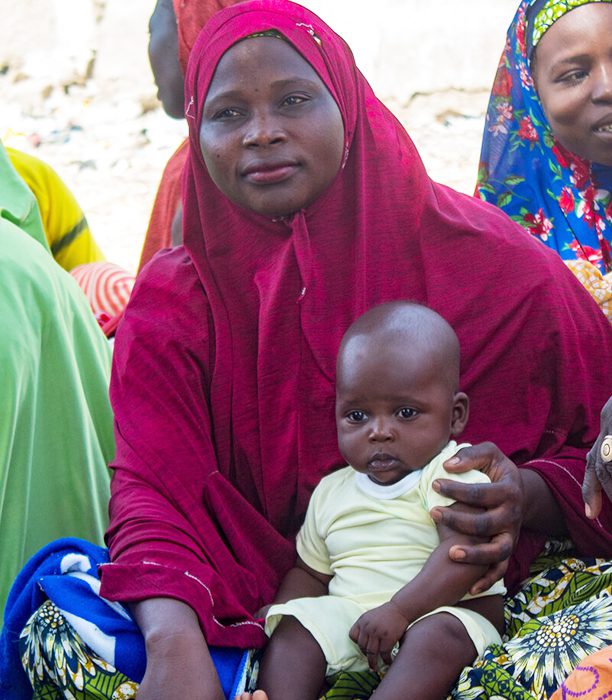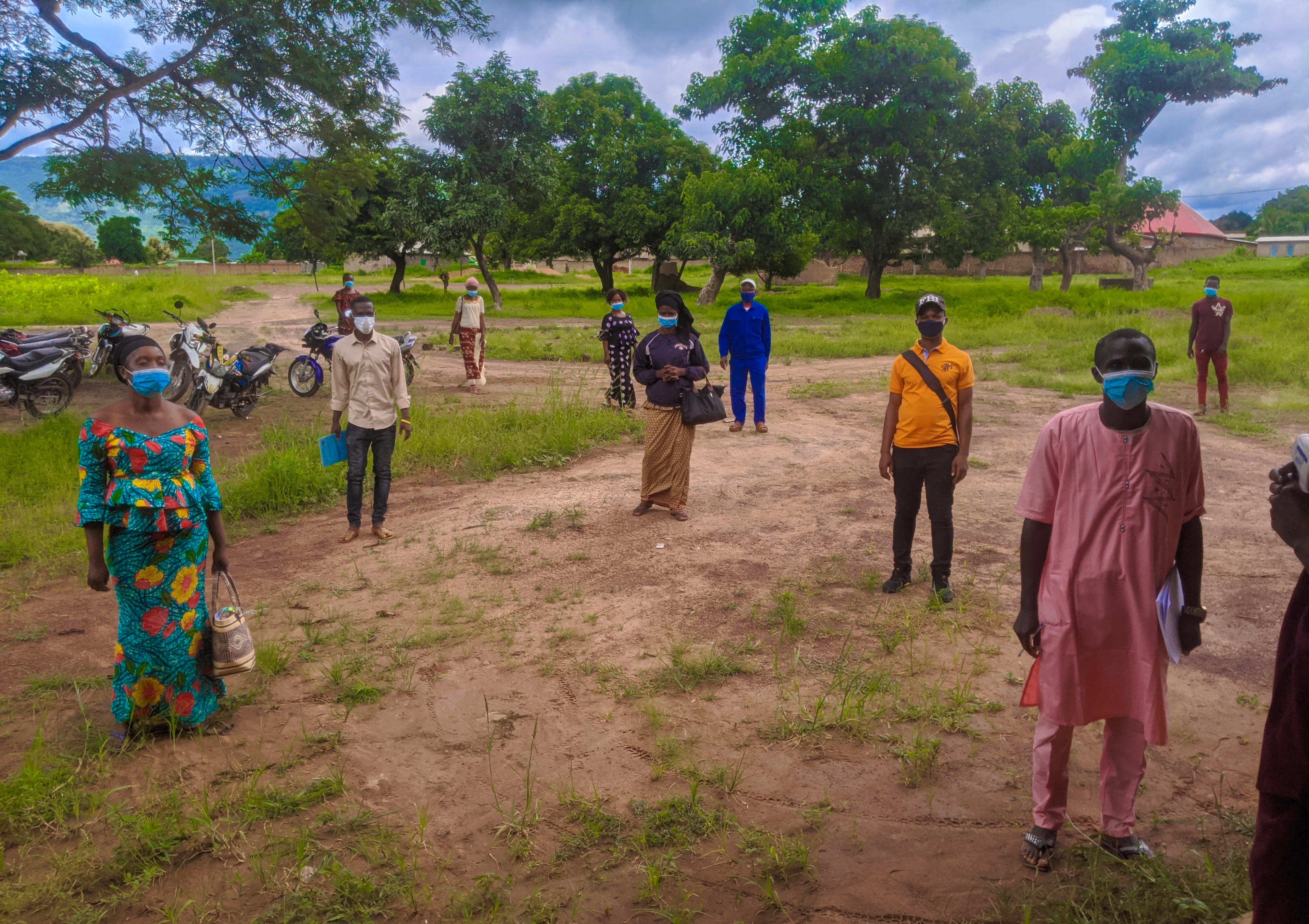
In Guinea, Fighting Diseases of Poverty in the Time of COVID-19
Have you heard of neglected tropical diseases such as lymphatic filariasis, onchocerciasis, and schistosomiasis? What are they? And what do they have in common?
They are what Helen Keller Intl calls “diseases of poverty” — diseases that cause suffering and disability among millions of people around the world who are living in poverty. The same diseases have mostly disappeared in wealthier nations with better access to health care.
Thankfully, there are life-changing drugs that can prevent and control these painful, debilitating diseases and even eliminate them, transforming risk into hope.
But how do we reach the populations that are the most vulnerable?
Through mass drug administration — large-scale campaigns in which disease-preventing drugs are provided to an entire community, free of charge.
To Fight or Eliminate Diseases of Poverty is a “Numbers Game.”
Helen Keller works with governments’ national “NTD programs” (neglected tropical disease programs) and with other partners like the World Health Organization. Together, we deliver drugs to communities at risk. Effectiveness depends in large part on consistency and tenacity.
To fight or eliminate these diseases is a numbers game. A large majority of community members must take the drugs that prevent and treat the diseases once per year for several years. Community-based surveys are conducted at regular intervals. These evaluate the effectiveness of treatment and determine whether the diseases are becoming less of a threat. Only with repeated high drug coverage can communities reduce transmission to the point where the targeted diseases are no longer a major threat.
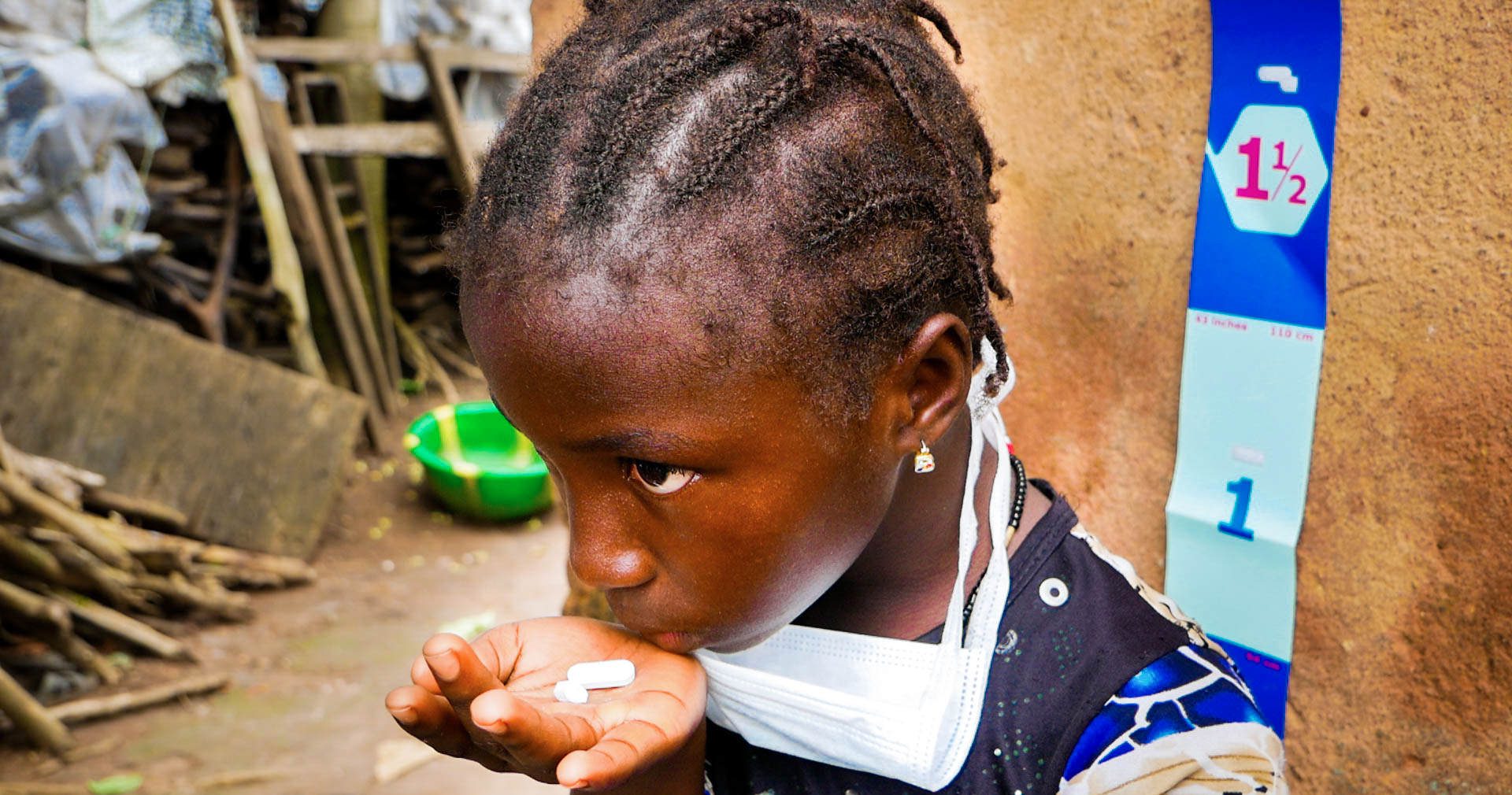
Across West Africa, USAID funds the Act to End Neglected Tropical Diseases | West program, led by FHI 360, through which Helen Keller implements these disease-fighting programs in seven countries. At the beginning of the COVID-19 pandemic, the World Health Organization recommended that countries pause mass drug administration campaigns and community-based surveys – two critical aspects of our work. This is because both activities involve large gatherings and close physical contact. The risk of COVID-19 transmission was too high.
COVID’s Collateral Damage: Delayed Progress on Neglected Tropical Diseases
But pauses would put at risk the very same communities where there is the possibility of winning the fight against debilitating diseases that cause untold hardship and misery.
Since the arrival of these drugs, the burden of these diseases has decreased in our communities.”
Alpha Oumar Fofana
“We’ve seen the importance of these drugs for a very long time,” said Alpha Oumar Fofana, who lives in the Dabola district of central Guinea. “Neglected tropical diseases have made people disabled in our communities. In the past, no one in our area could identify the cause of these diseases. Since the arrival of these drugs, the burden of these diseases has decreased in our communities.”
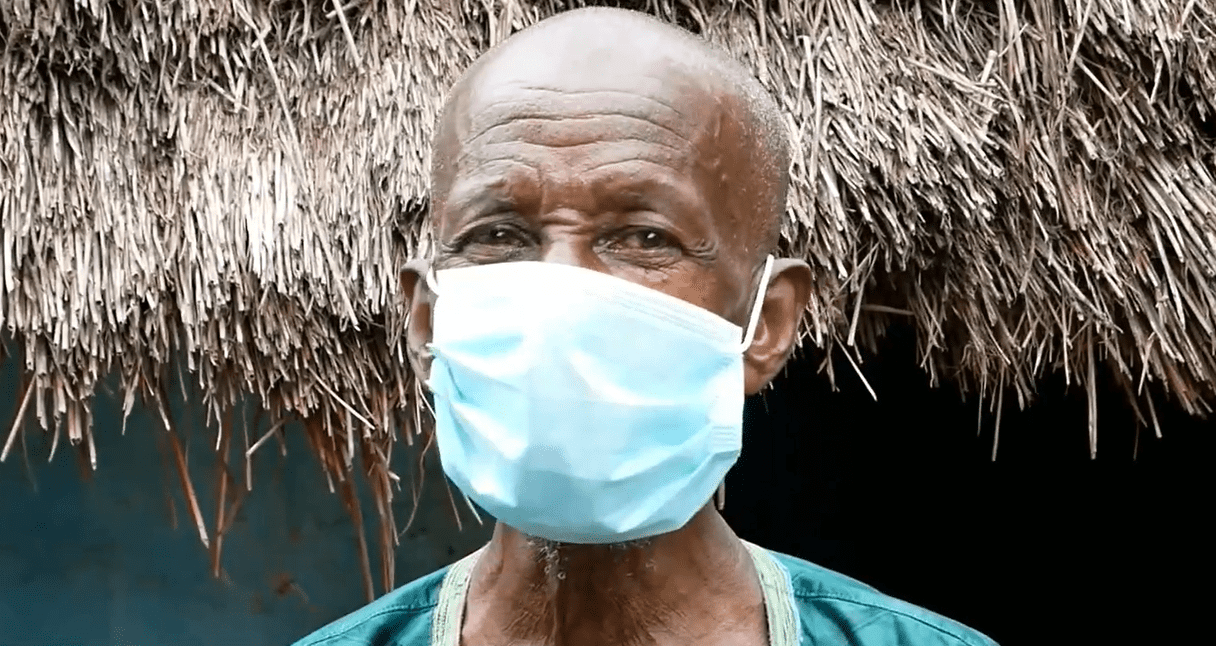
It would be a tragedy if these painful, disabling diseases regained a foothold in communities that had finally started to bring them under control after years of hard work. We were determined not to let COVID-19 cause that kind of collateral damage. Thankfully, most West African countries quickly implemented COVID-19 prevention and mitigation measures to lower infection rates and transmission risk. By the summer, governments and our partners were able to start the process of determining how to safely move forward with mass drug administration campaigns.
Pivoting for Safety
Since the situation was different in every country, we could not simply develop one set of universal safety guidelines. Instead, the countries where we work used the World Health Organization’s COVID-19 mitigation guidelines as a starting point. In partnership with each respective government’s ministry of health, Act to End Neglected Tropical Diseases | West developed customized plans that took into account each country’s circumstances.
Then, we submitted these comprehensive plans to USAID, which subsequently approved our strategy to resume activities in Guinea. It would be our first foray back into this work during the pandemic.
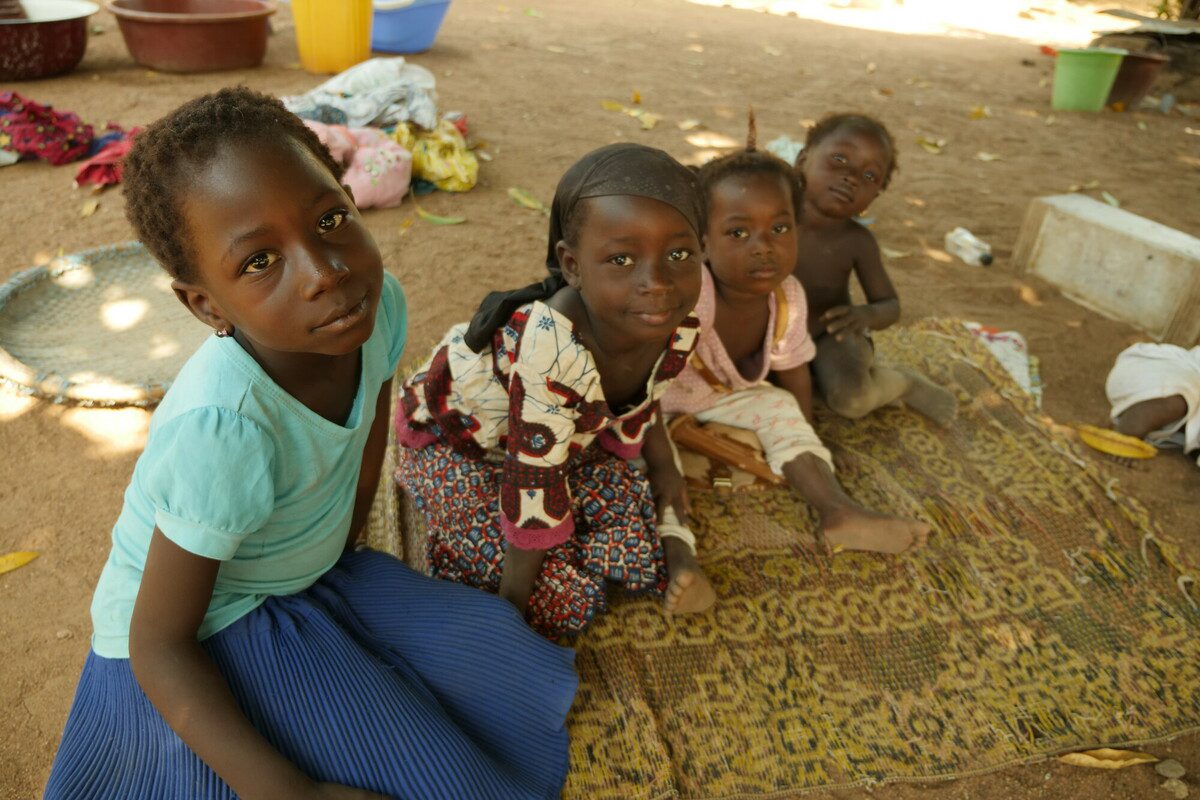
Help children and adults reach their potential. Your gift today will provide treatments for debilitating diseases and other essential health services.
The government of Guinea was eager to restart. They were committed to doing so safely. In fact, the government supplied masks for all the health workers to wear. They also provided handwashing stations for workers and community members to use throughout the campaign. Other measures that were taken included: limiting classroom size during training of health workers and drug distributors; testing central-level campaign workers for COVID-19 before travel to the field; and maintaining more than six feet, or two meters, of distance between health workers and community members. We also creatively delivered COVID-19 prevention messages to community members via radio broadcasts, town criers who walked around with megaphones, and more.
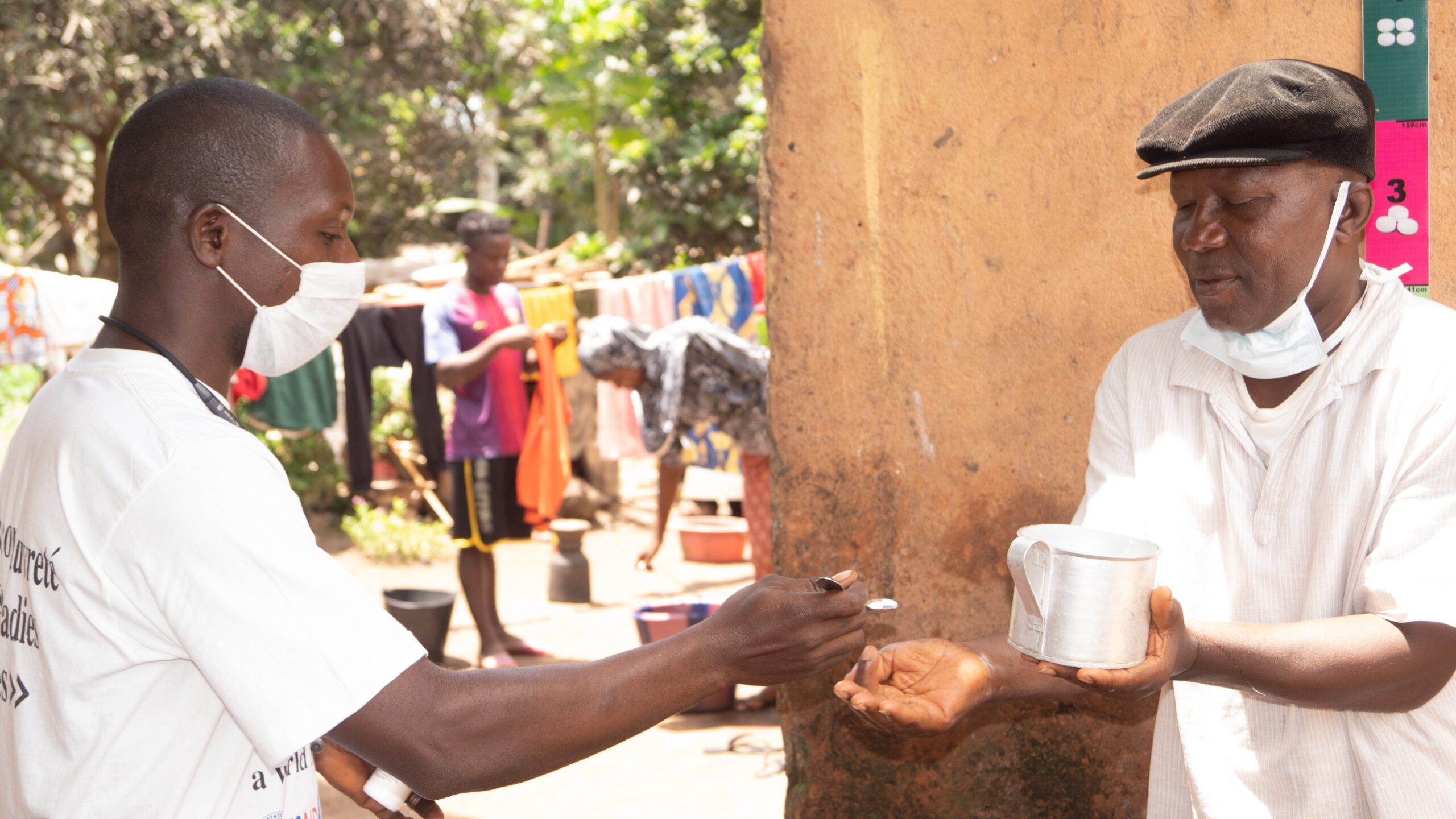
A Successful Blueprint
The campaign aimed to distribute almost 20 million pills to 4.4 million people across Guinea – all in just fourteen days. During normal times, this would be challenging. It was even more so during the COVID-19 pandemic, given the additional restrictions. Supervisors used a COVID-19 preventive measures checklist to ensure compliance while administering drugs to communities. Health workers and communities by and large complied with the COVID-19 mitigation measures. This did increase the time involved in carrying out our activities. However, it did not prove a hindrance to implementing mass drug distribution campaigns.
In fact, there was a positive spill-over effect. We can credit mass drug administration with helping to raise awareness about COVID-19 prevention measures.
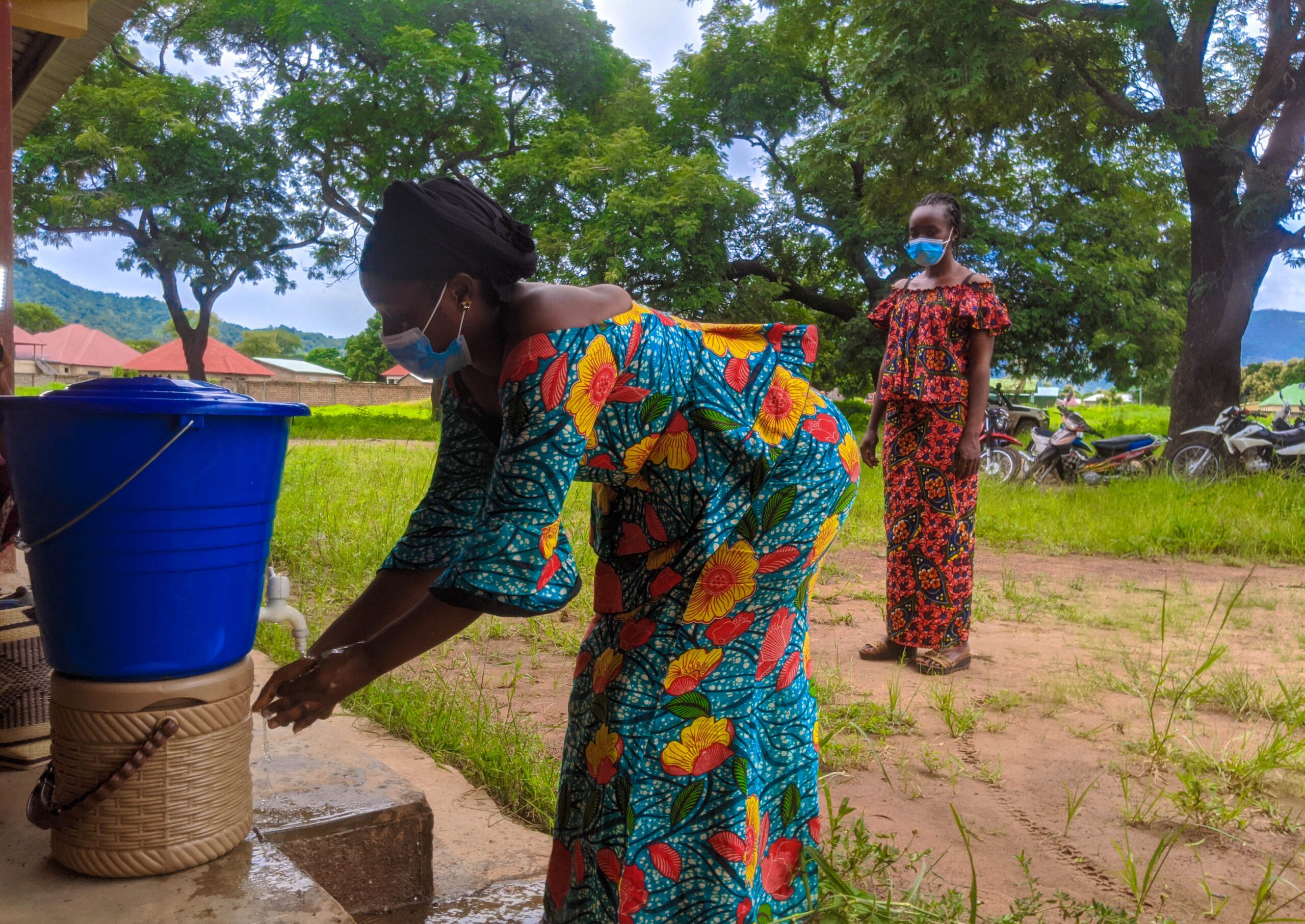
Encouraged by our success in Guinea, USAID gave us the go-ahead to resume field activities in other countries. Since then, Helen Keller teams have played a role in providing life-changing drugs during campaigns in Niger and Sierra Leone. Another campaign is underway in Burkina Faso. Made possible by the END Fund, we are also back at work in Nigeria.
The Road Ahead
Our assumption now is that mass drug campaigns will not “go back to normal.” Instead, we are proud to have created a “new normal.” Helen Keller, along with our partner governments and communities, can use this new framework in some of the highest risk countries and communities around the world. This will allow us to continue our work to eliminate the scourge of debilitating diseases of poverty across West Africa – safely.
